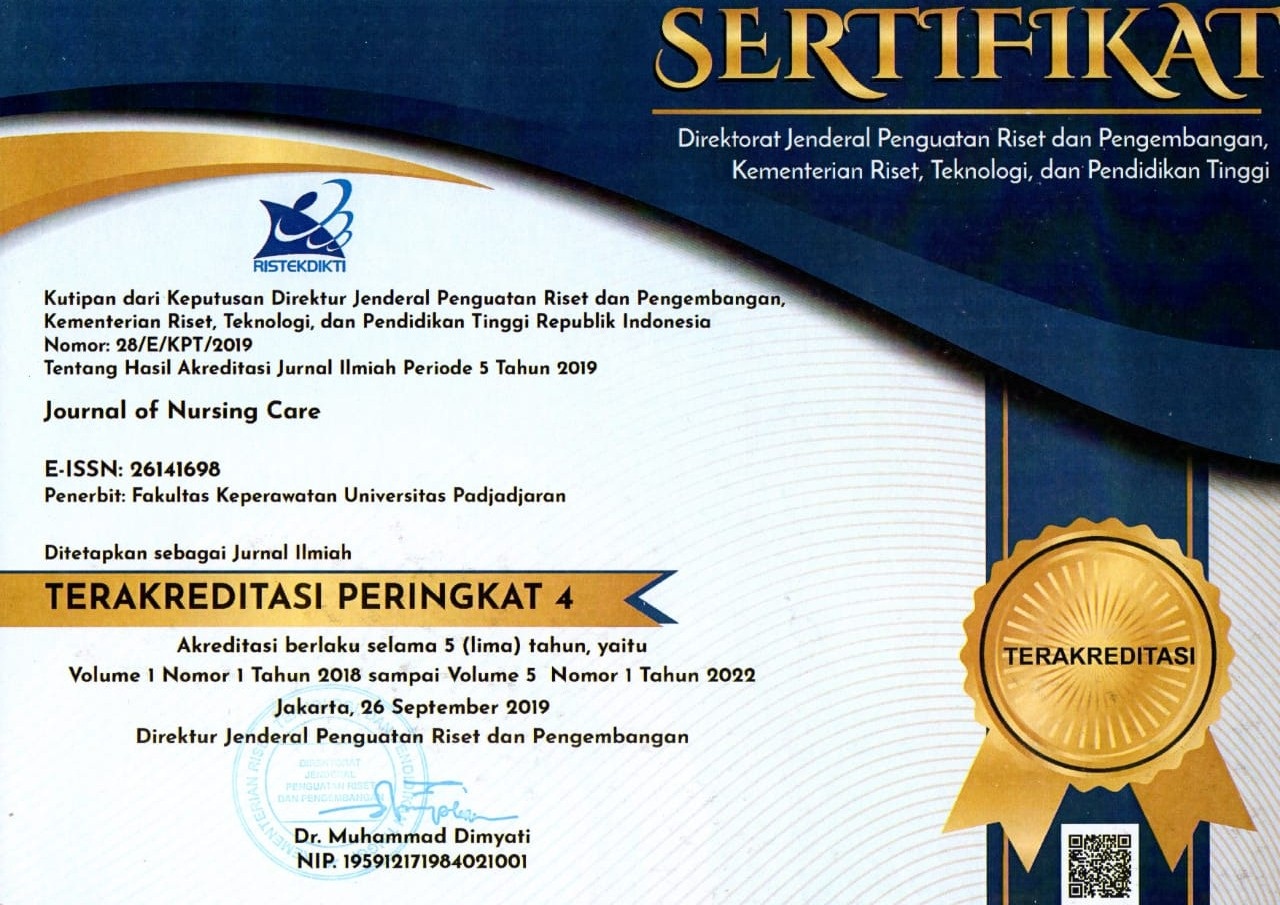The Effect of Health Education in Dealing With Epistaxis in Children: Parents’ Knowledge and Attitude
Abstract
Introduction: Epistaxis itself is usually experienced by children, and the impact of children who often experience epistaxis will cause complications. Often if a child who has epistaxis whose bleeding is continuous or recurrent, usually will be immediately taken to the health unit no matter the severity of the bleeding will still cause anxiety for parents. Objective: To determine the effect of health education on the handling of epistaxis in children on the level of parent’s knowledge and outlook at PAUD Ceria Makassar.
Research Methods: Using pre-experiment method with pre-post-test design approach. The sample used was 40 respondents using Accidental sampling technique. Data analysis using the Wilcoxon signed rank test. Results: Of the 40 respondents obtained pre-test results of good knowledge 14 (35%), less knowledge 26 (65%), and pre-test positive outlook 17 (42.5%), negative outlook 23 (57.5%), after health education post results of good knowledge 30 (75%) less knowledge 10 (25%), and post positive outlook 28 (70%), negative outlook 12 (30%). The test results using the Wilcoxon test showed that there was an effect of health education on the level of parental knowledge obtained a p-value of 0.000 <0.05 and the outlook of parents obtained a p-value of 0.000 <0.05. Conclusion: There is an effect of health education on the level of knowledge and outlook of parents in handling epistaxis in children.
Keywords
Full Text:
PDFReferences
Al-kubaisy, Y., Suwayyid, W. K., Al-shakhs, A. A., Addar, M., Alshammeri, M. D., Yahya, M., Mhraz, B., & Alshakhs, A. M. (2019). Teachers' awareness of first aid handling and control of epistaxis in schools in Riyadh region, Saudi Arabia. 3(November), 1135-1139. , Arab Saudi. 3(November), 1135–1139.
Alam, B., & Jawhari, A. M. (2022). Parents’ knowledge regarding first-aid handling of epistaxis in children in taif, saudi arabia.
Al-shehri, A.M.S,dkk (2021) Assess and evaluate the knowledge, outlook, and practice of epistaxis first aid handling in the community in the aseer area.
Ardiani, N. D., & Irdianty, M. S. (2023). Handling of Epistaxis (Nosebleed) in Children in Bulu Village, Karanganyar. 5(December 2022), 637–644. http://jurnal.globalhealthsciencegroup.com/index.php/JPM
Husni T.R., T., & Hadi, Z. (2019). Approaches to Diagnosis and Handling of Epistaxis. J. Ked. N. Med, 2(2), 26–32.
Lie, M., & Ali, S. (2019). Effect of Counseling on Knowledge of Epistaxis First Aid in Elementary School Teachers in Penjaringan District. Mitra Journal.
Lubis, B., & Saragih, R. A. C. (2020). Handling of Recurrent Epistaxis in Children. Sari Pediatrii, 9(2), 75. https://doi.org/10.14238/sp9.2.2007.75-9
Novrianti, R. (2022). Effect of Health Education on Epistaxis First Aid at Home on the Knowledge Level of Mothers with School Children.
Notoatmodjo, S. (2007) Health Promotion and Behavioral Science. Jakarta: PT Rineka Cipta
Notoatmodjo, S. (2012). Health Research Methodology. Reneka Cipta - Jakarta
Octavina, S. M.S (2017). The Relationship between Teachers' Knowledge of Epistaxis / Nosebleed with First Aid Outlook in the Event of Nosebleeds in the Classroom Narada National Plus School Jakarta
Rizki, N. A. (2018). Effect of health education on syncope and epistaxis treatment skills among students at MI Plus Bunga Bangsa Dolopo, Madiun Regency.
Saifuddin,Azwar, 2012. Human Outlook: Theory and Measurement. Yogyakarta: Liberty
Sutaryo, Supriadi, E., & Mulatsih, S. (2019). Beware of Nosebleeds in Children. https://sardjito.co.id/2019/08/28/waspadai-mimisan-pada-anak/
Wong, A. S., & Anat, D. S. (2019). Epistaxis: A guide to assessment and handling. The Journal of Family Practice, 67(12), E13–E20.
DOI: https://doi.org/10.24198/jnc.v7i3.54991
Refbacks
- There are currently no refbacks.

This work is licensed under a Creative Commons Attribution-ShareAlike 4.0 International License.










Redaksi Journal of Nursing Care:
Fakultas Keperawatan, Universitas Padjadjaran
Jalan Raya Bandung-Sumedang Km. 21 Jatinangor, Sumedang, Indonesia 45363
WA: 085314295890
Tlp. 022-7795596
Email: jnc.fkep@unpad.ac.id

This work is licensed under a Creative Commons Attribution-NonCommercial 4.0 International License


